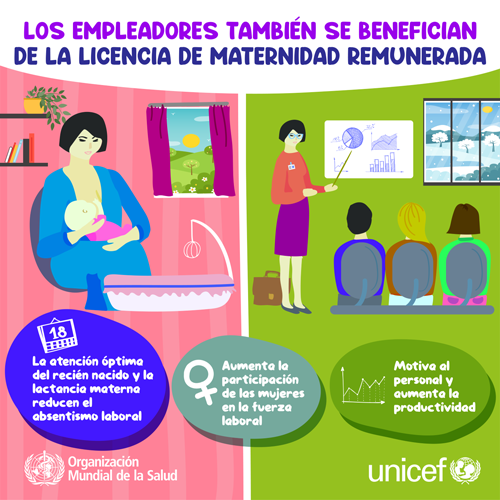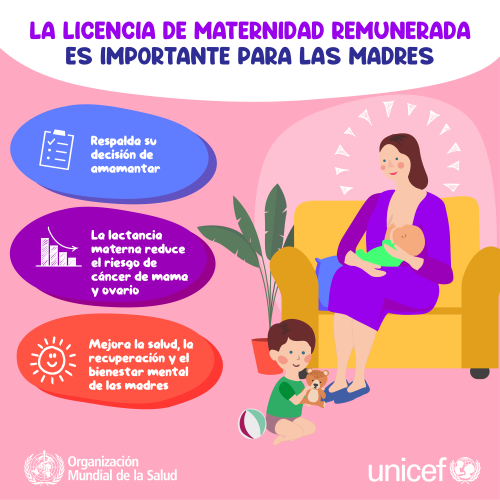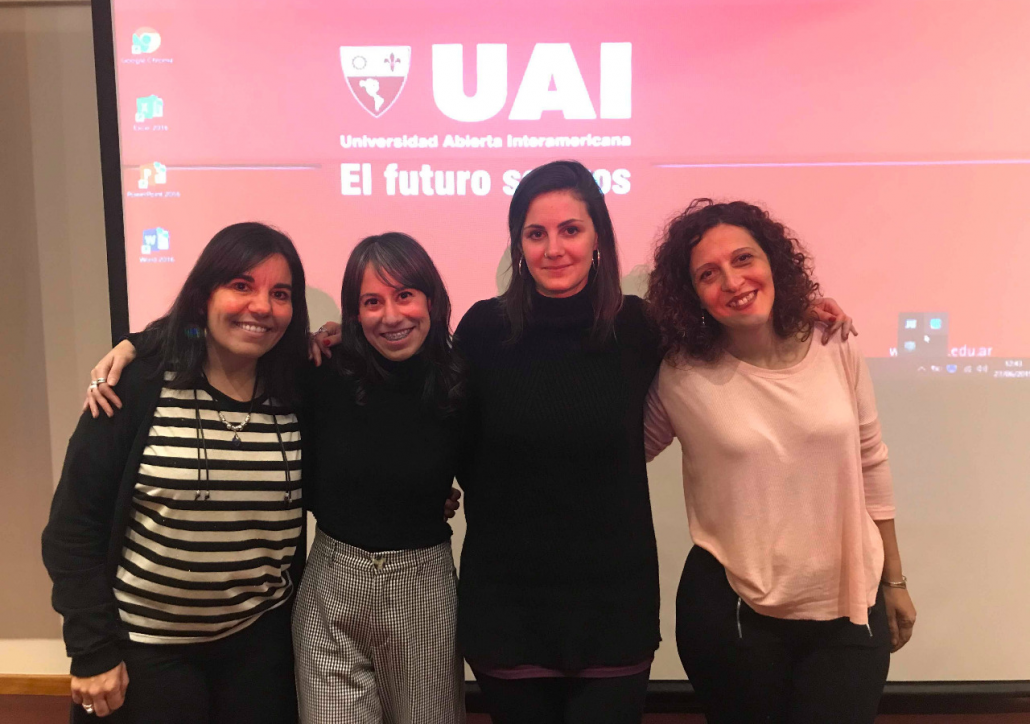Together with Comunicar Igualdad, we present the results of an investigation carried out in 2018 on the advertising sector, from educational institutions, trade unions, professional associations and advertising agencies in Córdoba and Buenos Aires.
“Below, we offer a google translate version of the original article in Spanish. This translation may not be accurate but serves as a general presentation of the article. For more accurate information, please switch to the Spanish version of the website. In addition, feel free to directly contact in English the person mentioned at the bottom of this article with regards to this topic”.
This publication is part of a research process of more than three years, carried out by the Civil Association Communication for Equality and the Foundation for the Development of Sustainable Policies – FUNDEPS – which addresses the problem of inequality in the field of communication, from access to participation, information and justice of citizens in public policies (2012/2016 and 2018), to access to equality in access to opportunities in the organizational structures of the media world, and in this case, the sector of the advertising industry.
The media and the advertising industry, as essential actors in the preparation of content, are spaces that hold great power, not only commercial or as cultural institutions, but are established as opinion makers, producers, reproducers and transmitters of values, stereotypes, meanings and common sense, while defining what is considered relevant, normal, debatable and socially accepted or rejected. It is fundamental to understand in this sense the global concern about the problem of inequality in access to opportunities for women and people in the LGTTTBIQ + community.
Already in 1995, the Platform for Action (PAB) of the Fourth World Conference on Women, held in Beijing, established as a strategic objective, within its section J, the need to “Increase access for women and their participation in expressing their ideas and making decisions in the media and through them, as well as in new communication technologies.” Among others, this is a commitment that States and civil society assumed in order to advance the process towards real equality between genders.
Closer in time, at the 62nd session of the Commission on the Status of Women, which in March 2018, the following topic was considered: The participation of women in the media and Information and communication technologies, and women’s access to them, as well as their impact on the advancement and empowerment of women and their use for these purposes.
In the same way, and as it will be analyzed throughout the present, the Yogyakarta Principles, which since 2007 have addressed the application of international human rights legislation in relation to sexual orientation and gender identity, in section 19, recommends that States ensure that both the production and the organization of media regulated by the State are pluralistic and non-discriminatory with regard to matters related to sexual orientation and gender identity, as well as in the hiring of personal and promotional policies, such organizations do not discriminate on the grounds of sexual orientation or gender identity.
In this framework, we present this report, we conducted an investigation throughout 2018, with the main objective of knowing the labor structure and gender policies of advertising agencies, professional associations, unions and educational institutions linked to the advertising sector of Argentina. The results show the representation of gender in their areas of operation, in the preparation of content and in decision-making positions. The approach is a necessary complement in order to understand the complete reality that covers the problem of communication, from a gender perspective
To carry out the report, interviews were held in the city of Buenos Aires and Córdoba, with: persons in charge of human resources or similar areas of advertising agencies; directives from universities that include careers related to the advertising sector; and unions and workers from that environment. In addition, data was collected and data was collected from official information sources.
RECOMMENDATIONS
Based on the conclusions obtained in the investigation, and the democratization suggestions of the organizations made by the publicity workers and members of unions interviewed, the following recommendations have been made.
GENERAL
- All the actors involved, and in collective strategies, must implement measures to mainstream the gender perspective. This will allow:
- Denature the stereotyped messages that promote discrimination and violence.
- Respect the principle of self-determination of sexual identities and orientations to promote images, characterizations and discourses that make visible and respectful of the diversity of gender identities, sexual orientations, as well as the diversity of bodies, needs and lifestyles.
- It is important to rethink in all areas of the advertising industry the promotion of work with audiences.
FOR ADVERTISING AGENCIES
- Promote a diverse and equal participation in terms of gender within the advertising agencies, especially in decision-making spaces.
- Design strategies for the reduction of horizontal [1] and vertical segregation [2] that eliminate prejudices and gender discrimination and achieve real access to opportunities for all people equally in all instances of professional development.
- Implement positive, real and concrete actions for the inclusion of LGTTBIQ + people in the industry.
- Fully comply with labor laws regarding the payment of overtime and child care service, both rights granted by law that substantially affect the distribution by gender in different areas of the industry.
- Conduct trainings on gender issues, regarding the preparation of the contents of the advertising pieces, as well as the necessary democratization of the agencies from this perspective.
- Create offices for the monitoring and diagnosis of issues related to gender issues and the design of internal policies, as well as to address problems related to workplace harassment and gender violence.
- Adopt a proactive thematic agenda on human rights and gender in the contents of the advertising pieces.
FOR PROFESSIONAL ASSOCIATIONS AND TRADE UNIONS
- To reinforce the real representation of the sector of workers of the advertising industry, that responds to their needs in a democratic way and with real reach and in the whole country.
- Include the gender perspective as a central element in the construction of the measures to be adopted, both in the claim for the real fulfillment of the rights of the workers, and in the conquest and advancement of those that are not recognized.
- Encourage, on the part of professional associations, the gender perspective among those who work in the industry and, above all, between advertisers.
- Develop gender policies within professional associations, to promote this approach with a view to the democratization of the industry.
- Promote the gender perspective in instances of prizes and publicity contests.
FOR EDUCATIONAL INSTITUTIONS
- Design strategies to democratize managerial structures such as the teaching staff of schools and universities linked to advertising, with a focus on the need for greater insertion of female teachers and transgender people.
- Include the gender dimension as a compulsory subject of the curricular construction of the careers corresponding to the advertising sector.
- Create spaces to denounce and address situations of gender violence and harassment and specific areas for the design of gender education policies.
- Establish agreements with advertising agencies for the promotion of women and trans students in them.
FOR THE STATE
- Generate awareness campaigns for the whole society and consult specialized sources. For this it will be necessary to work together with different actors: educational institutions, civil society organizations, social movements, government areas, specialists, media and advertising companies.
- Expand the protective spectrum of public communication and gender policies, with specific attention to the dimension of advertising.
- Implement affirmative actions to promote the labor integration of women and LGTTBIQ + people in the advertising and institutional communication agencies of the public system: quotas, internship programs, training for inclusion, among others.
- Design measures that import affirmative actions to promote the labor integration of women and LGTTBIQ + people in private advertising agencies: tax incentives and granting economic support to those who have specific policies for the promotion of gender equality.
- Generate strategies to promote small advertising ventures aimed at women and trans collectives.
- Expand the regulations related to paternity leave and licenses for care of people, regardless of their gender identity.
- Promote a culture of democratization of organizations, through campaigns, sensitization, training and specific programs for the advertising industry, as well as the communication sector in general.
FOR CIVIL SOCIETY
- Generate more spaces that represent the advertising sector within civil society organizations, which can address the challenges of the problem and can achieve greater advocacy capacity for the purpose of democratizing the industry.
- Monitor constantly the actions of the agencies, unions, the State and universities, in order to give an account of the reality of the advertising sector and promote concrete measures for its approach.
Access to equal opportunities is one of the great debts of our society, and therefore it is necessary to continue breaking with the structures of power that invisibilize and exclude. It is of fundamental importance to continue walking towards an egalitarian democracy that recognizes in an inclusive way the rights of all citizens. The advertising sector is an important social actor. If the contents that are generated, and their functioning mechanisms are democratized towards real inclusion, a huge barrier will have been broken to achieve real equality for the whole society.
[1] Preeminence of males in the areas of Creativity, Technology and Production among others; and women in Administration, Accounts and Planning.
[2] Preeminence of males in management positions in most areas and, above all, in the General Directorates, Coordination and among CEOs.
Publication
More information
Contact
Virginia Pedraza – vir.pedraza@fundeps.org
Cecilia Bustos Moreschi – cecilia.bustos.moreschi@fundeps.org




